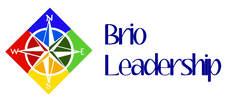“Consciousness precedes being... For this reason, the salvation of this human world lies nowhere else than in the human heart, in the human power to reflect, in human meekness and in human responsibility. Without a global revolution in the sphere of human consciousness, nothing will change for the better.” The greatest leadership thinkers are those who are concerned about the inner essence or consciousness of the leader, not the more visible leadership skills and competencies. Although leadership skills are very important, skills can be taught to and learned by almost anyone; who you are is unique and is the result of the work you’ve down on the inside. Inner work is the work of the soul, and it shapes your consciousness, the essence of who you really are. Leaders lead from who they are, not from their scholastic or business achievements. Who you are as a leader speaks louder than words and is projected on an imaginary screen for all your followers to see. They can see if you are true to your word; they can see if you react without fear and with a calm demeanor; they can see if you can articulate a 5-year vision rather than fixate on short term goals; they can see if you can respect and consider multiple perspectives. These qualities represent the inner consciousness of an effective leader. What our world needs today are leaders who have taken time to work on themselves, from the inside out. Here are three ways to work on your leadership skills from the inside out:
How do you know thyself better? First of all, read. Read business books, self-help books, management books, novels. Learn about the latest discoveries in neuroscience, psychology and emotional intelligence. Be a life-long learner. For maximum learning, always be in the middle of a book that will make you a better person. Get an executive coach who can help you with personality assessments, a 360 degree assessment and a life retrospective. Work with a person who can facilitate deeper learning than possible on your own. Lastly, seek feedback. I worked with an executive whose mantra was “Feedback is the breakfast of champions!” Ask your employees questions such as, “How did the staff meeting go for you? What could I have done better?” Another one of my executive colleagues will always preface his request for feedback with this disarming thought: “You won’t hurt my feelings if you didn’t like it.” Ask a peer for feedback on your performance during a meeting, as in “Hey, how did my reaction to the boss come off to you? How could I have said that better?” Another colleague visited a site, gathered the team around a table, threw a $100 bill on the table and said, “Whoever can give me the most honest comment about what goes on around here will win that bill.”
However, planning and reviewing your day is not so popular, but many leaders that I work with either intuitively do this or quickly learn the benefits of it. Planning your day means reviewing your calendar of meetings in the morning and deciding who you want to be, what qualities you want to embody and what ideal results would be from each encounter on your calendar. Your day’s schedule might include a budget meeting, a lunch with a peer and several meetings with team members. To each of the participants in those meetings, you might mentally wish them well as you review the day and then decide what the optimal result would be for the meeting. The review can be done at the end of the day, perhaps before you go to bed, or the next morning at the same time as your planning. The review consists of replaying the memory of what you did each hour of the preceding day, and noting the things that made you happiest, proud or grateful – in other words, the highlights of the day. List, either mentally or on paper, at least 3 high points. Then, list one thing “to grow on” – one thing that you might handle better in the future.
I recently read a definition of consciousness that I resonate with: Consciousness is awareness plus considered or appropriate response. It can be depicted as a formula: Consciousness = awareness + appropriate response Awareness includes what’s happening in the moment, of your own inner reaction, of your observations of other people or things around you. You are aware when your “Observer Mind” is actively noticing and parsing your thoughts, feelings, and reactions to the events of your life. Appropriate response is usually a delayed reaction. If you can insert a pause (a breath, a beat of time) between the triggers in your environment and your response, you can usually respond more maturely. The value of breathing in leadership is highly under-rated. Non-anxious leaders will often breathe before responding to questions, threats and emotional triggers. Try it! Remember, who you are as a leader is much more important than all the leadership skills you’ve studied in a classroom or book. A great leader constantly works from the inside out to build their character and consciousness. Be the leader you wish to see! Kristin Robertson, CEO of Brio Leadership, is dedicated to increasing the number of employees who are excited to go to work on Monday mornings. Services include executive coaching, leadership development classes and company culture consulting. Don’t forget to get a copy of Kristin Robertson’s new book, Your Company Culture Ecosystem, available on Amazon.
0 Comments
Leave a Reply. |
From the desk of
|
Our services |
Our Company |


 RSS Feed
RSS Feed

